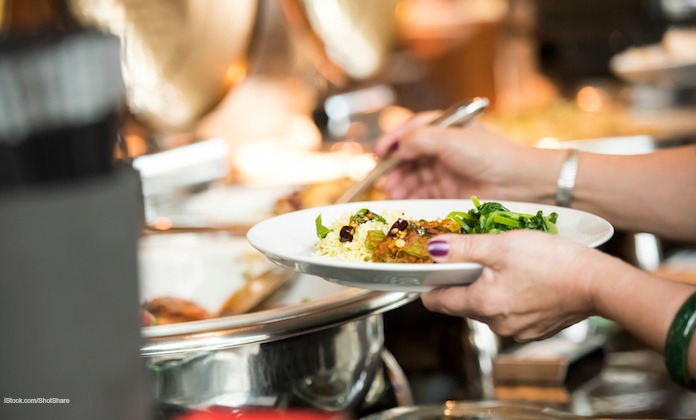A wedding held in Snonomish County, Washington state last month was the scene of a food poisoning outbreak that sickened at least 20 people. The caterer for that event, Mr. Rick’s Catering, was unlicensed and unpermitted. In fact, that business was recently fined by the Tacoma-Pierce County Health Department for continuing to operate without a permit since 2012.

If you are planning an event and need a caterer, it behooves you to investigate their background. Unlicensed caterers do exist in this country. The Tacoma-Pierce County Health Department reminds consumers that buy9ing food from permitted food sellers reduces your risk for foodborne illness. No food is 100% safe, of course, but reducing the risk of contamination is important.
Permitted caterers employ staff who are trained in safe food handling practices. They use an approved, regularly inspected commercial kitchen. And they have the right equipment to safely prepare, transport, and serve food. News reports state that Mr. Rick’s Catering partially cooked the chicken served at that wedding at an outdoor barbecue at a private home, then finished them in the oven at the event. Partially cooking meat and holding it to finish later is a prime way to ensure that bacteria and their heat-resistant toxins are present.
You may save a little money by hiring a caterer without the proper permits, but the costs of foodborne illness, in medical costs, physical and emotional costs, and potential legal risk, far outweigh any savings. People in high risk groups, including the very young, pregnant women, the elderly, those with chronic illnesses, and people with compromised immune systems, can die from food poisoning.
Make sure that the caterer you hire has aa Health Department permit. Laws can vary by state, county, and city, so check with your local health department to make sure. In Tacoma-Pierce County, licensed caterers are listed at the government website.
And either the venue or the caterer may have to supply some items that help prevent foodborne illness, including a protected area for food preparation and assembly, equipment to keep the hot food hot and cold food cold, and hot and cold running water, and hand washing sinks that are separate from the restrooms. The venue must have decent facilities, including clean restrooms and a licensed kitchen, if the caterer does not supply those items.
Finally, it’s a good idea that you understand the basics of food safety, so you can keep an eye on the caterer and make sure he or she is following all of the laws and rules. If you see workers who are ill, who are handling food without gloves, food that sits out of refrigeration longer than two hours, or other red lights, inform the caterer of the problem.




